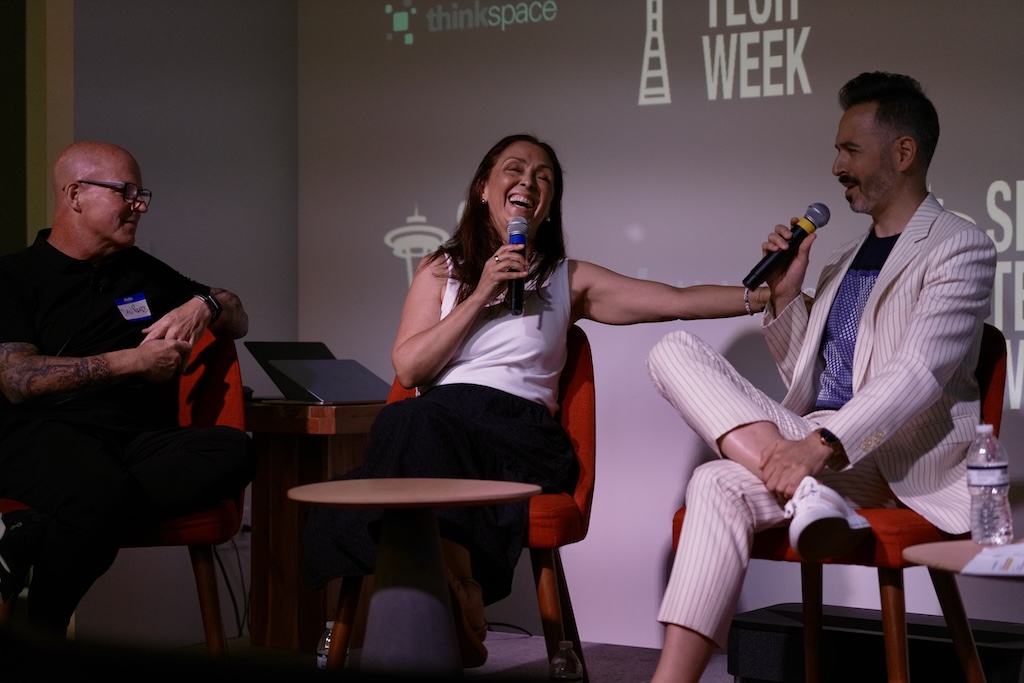Enter [what’s been on my mind]

A recent NY Times article asked, “Is marriage headed for an overhaul?” The author was responding to what experts are saying, that “there is a need to rethink an institution that so often fails.” Some even suggest that short-term marriage contracts may be the answer. But does favoring till awhile do us part versus till death do us part offer an answer to the marriage dilemma? Or does our culture simply misunderstand compatibility?
Blink [see a new perspective]
Maybe marriage’s fatality rate doesn’t stem from commitment issues, but compatibility issues. We have no problem committing to people that we are in love with. But what happens when that love changes? The root of the matter is, for better or worse, can you commit to being compatible with the same person 10 years from now? 20 years from now? Forever? Stanley Hauerwas, an Ethics Professor at Duke University, comes to a similar conclusion:
“Destructive to marriage is the self-fulfillment ethic that assumes marriage and the family are primarily institutions of personal fulfillment, necessary for us to become ‘whole’ and happy. The assumption is that there is someone just right for us to marry and that if we look closely enough we will find the right person. This moral assumption overlooks a crucial aspect to marriage. It fails to appreciate the fact that we always marry the wrong person. We never know whom we marry; we just think we do. Or even if we first marry the right person, just give it a while and he or she will change. For marriage, being [the enormous thing it is] means we are not the same person after we have entered it. The primary challenge of marriage is learning how to love and care for the stranger to whom you find yourself married.”
Shift [try it out]
As busy people, we make commitments all the time. Whether it involves a project, a job, or a person, there are various levels of commitment: informed, interested, highly motivated, as well as uninformed, uninterested, and unmotivated. The bottom line is this: what you commit to matters and how you commit matters. Contracts might be realistic for some matters, but relational contracts might not be the best idea. When it comes to any kind of relationship, commitment and compatibility must be at the forefront of your mind. After a commitment is made, the relational chemistry will most likely shift. Marriage is an excellent example of this, but other relationships – i.e. business partners, clients, customers, friends – change, too. The challenge with commitments is continuing to be aware and intentional with the dynamics within the relationship. People are not contracts, and they must be treated with care. Imagine if you spent the same amount of time and energy that you do with your career as you do with your husband or wife. That kind of devotion could change everything. In any relationship where you go above and beyond, people are bound to notice. And in turn, they will notice if you aren’t going above and beyond.
Listen [hear from our community]
I met my wife in college. When you marry a person it’s not about being perfect and compatible for each other forever. It’s about making a commitment to each other to take that life journey together for the rest of your lives. The stage that we met at in college is way different than the early working years while starting a career. That stage is completely different than the stage when we started to have a family. It’s always changing and people are always changing. The key thing is relationships; it’s about total commitment and putting the energy into the relationship. If you think you just have to put the energy in at the beginning to win the person’s heart you’re wrong. In business, it’s all about relationships. A co-founder an employee, a customer. A customer doesn’t do business with a company, it’s a person doing business with another person. Once you recognize that it’s all about people you understand it’s all about relationships. Once it’s about the relationship there isn’t anything that I wouldn’t do for a co-founder, employee, or customer as long as there is a relationship. Once it becomes unconditional it becomes special and that’s where the magic is.
-Peter Chee, CEO and founder of Thinkspace
